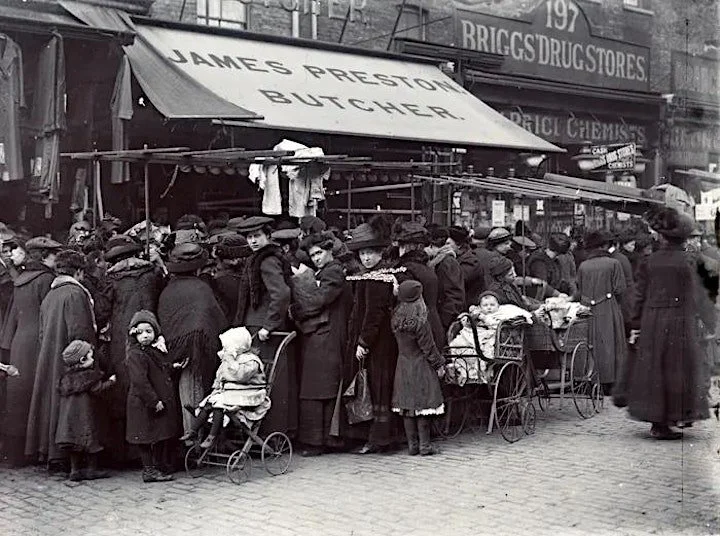The past, present and future of the city's oldest way of shopping
doors: 7pm
The co-founders of the Modern Cockney Festival explore the long legacy of London’s street sellers and their value for the city's future.
London’s oldest known market was at Cheapside, established in the 9th century during the reign of Alfred the Great. By the late Victorian era, central London was home to 112 street markets, yet now there are only just over 40 with many facing uncertain futures.
Saif Osman describes the evolution of the city street markets over their thousand year history, and why he and other activists fight to save and rejuvenate them in community campaigns ranging from Save Queen Street to Brick Lane. What will we lose if pressure from developers and changing shopping habits should end that history?
Andy Green tells of the value of markets to London's culture based on personal experience growing up in the East End. Can the markets address the challenges facing those who believe they remain essential for selling food to diverse local communities? Can they continue to provide places for both new arrivals and existing working-class families to experience a wide variety of language and culture, and can they adapt to offer choice, specialist goods and new services to the next generation of Londoners?
The Modern Cockney Festival is a month-long celebration of the culture, heritage, and future of ‘non-posh Londoners’
The festival includes the virtual Museum of the Modern Cockney - telling the story of Cockney in 50 objects, the first-ever National Pie’n’Mash Week, the Modern Cockney Kids Festival at the Museum of London Docklands and the Whitechapel Art Gallery, plus film screenings, events, talks, online events and more.



